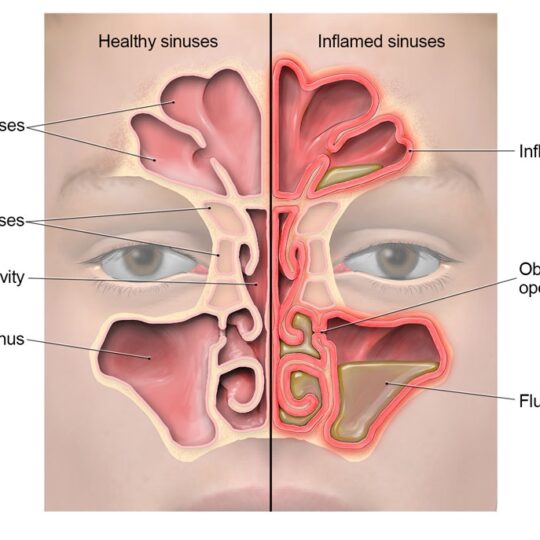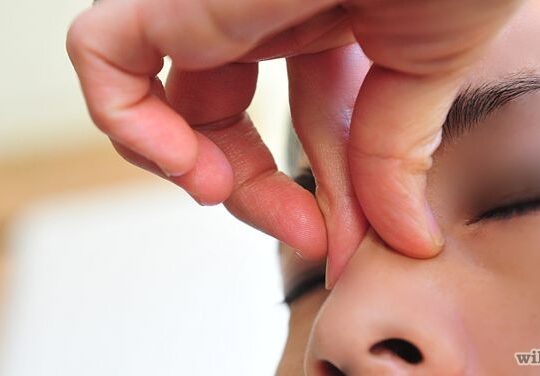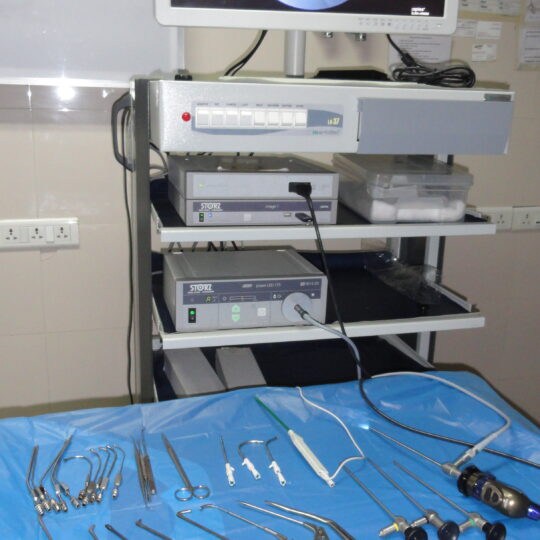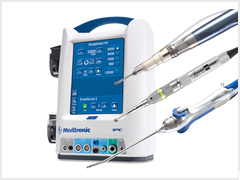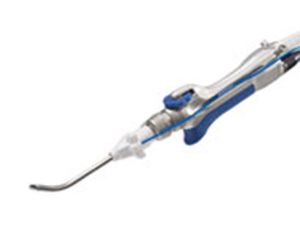Sinuses
What are sinuses?
Sinuses are air-filled cavities in bones forming the face and skull, and they decrease the weight of the skull.
The sinuses extend through the cheekbones, the forehead, behind the nose, and between as well as behind the eyes.
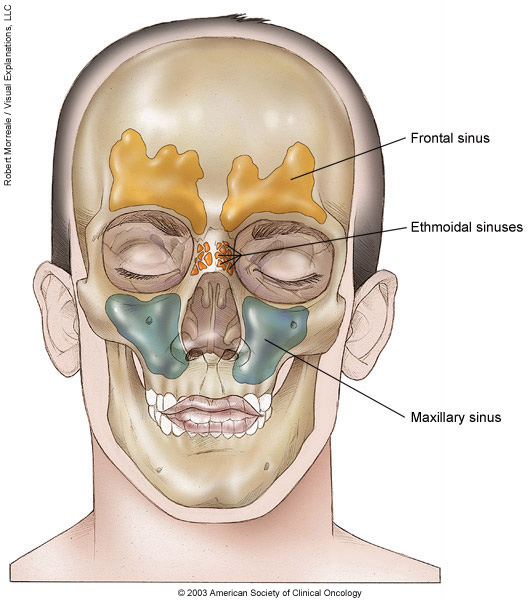
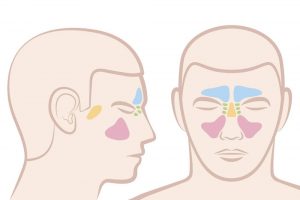
There are a few different sinuses, and they are all interconnected.
- In the cheekbones are the maxillary sinuses, the largest of the sinuses. There is one opening in each cheek.
- In the bone of the forehead, above the bridge of the nose, are the frontal sinuses—one per side.
- The ethmoid sinuses are between the eyes, behind the bone at the inside corner of each eye, and are structured like a honeycomb.
The sphenoid sinuses are located farther back, behind the ethmoid sinuses and behind the level of eye.
Sinusitis
Sinusitis (sinus infection) is inflammation of the sinuses. Patients will have facial pain, nose block, thick nasal discharge, fever, loss of sense of smell, cough and sore throat. It can be caused by either bacteria or fungus. Bacteria causing rhinosinusitis include Streptococcus pneumoniae, Haemophilus influenzae, and Moraxella catarrhalis commonly.

Fungal sinusitis
Fungal sinusitis is the inflammation of the lining mucosa of the paranasal sinuses due to fungal infection. It occurs in people with reduced immunity (ex-diabetes mellitus) The maxillary sinus is the most commonly involved .Fungi responsible for fungal sinusitis are Aspergillus fumigatus (90%), Aspergillus flavus, and Aspergillus niger. Mucormycosis is another type of fugal sinusitis where the disease spreads into blood and other surrounding tissues including eye and brain.
What are nasal polyps?
Nasal polyps are soft, painless, noncancerous growths arising from the lining of your nasal cavity or sinuses. They hang down like teardrops or grapes. They result from chronic inflammation due to asthma, recurring infection, allergies, drug sensitivity or certain immune disorders. Patients usually come with nasal block or loss of sense of smell.
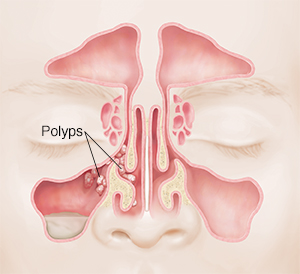
Endoscopic sinus surgery
Functional endoscopic sinus surgery (FESS) is a minimally invasive surgical treatment which uses nasal endoscopy guidance to enlarge the nasal drainage pathways of the paranasal sinuses to improve sinus ventilation. This procedure is generally used to treat inflammatory and infectious sinus diseases, including chronic rhinosinusitis that doesn’t respond to drugs, nasal polyps, some cancers, etc.
Widening of Sinus ostium, polyps removal are done using various specialized blades of microdebrider which are custom made for each sinus. We use xomed microsdebrider system with m4 hand piece which is one of the best devices in the world. Our endoscopy guidance is via storz spice HD which is currently the latest and best endoscopy system available in ENT.

polyps seen in left side nasal cavity.
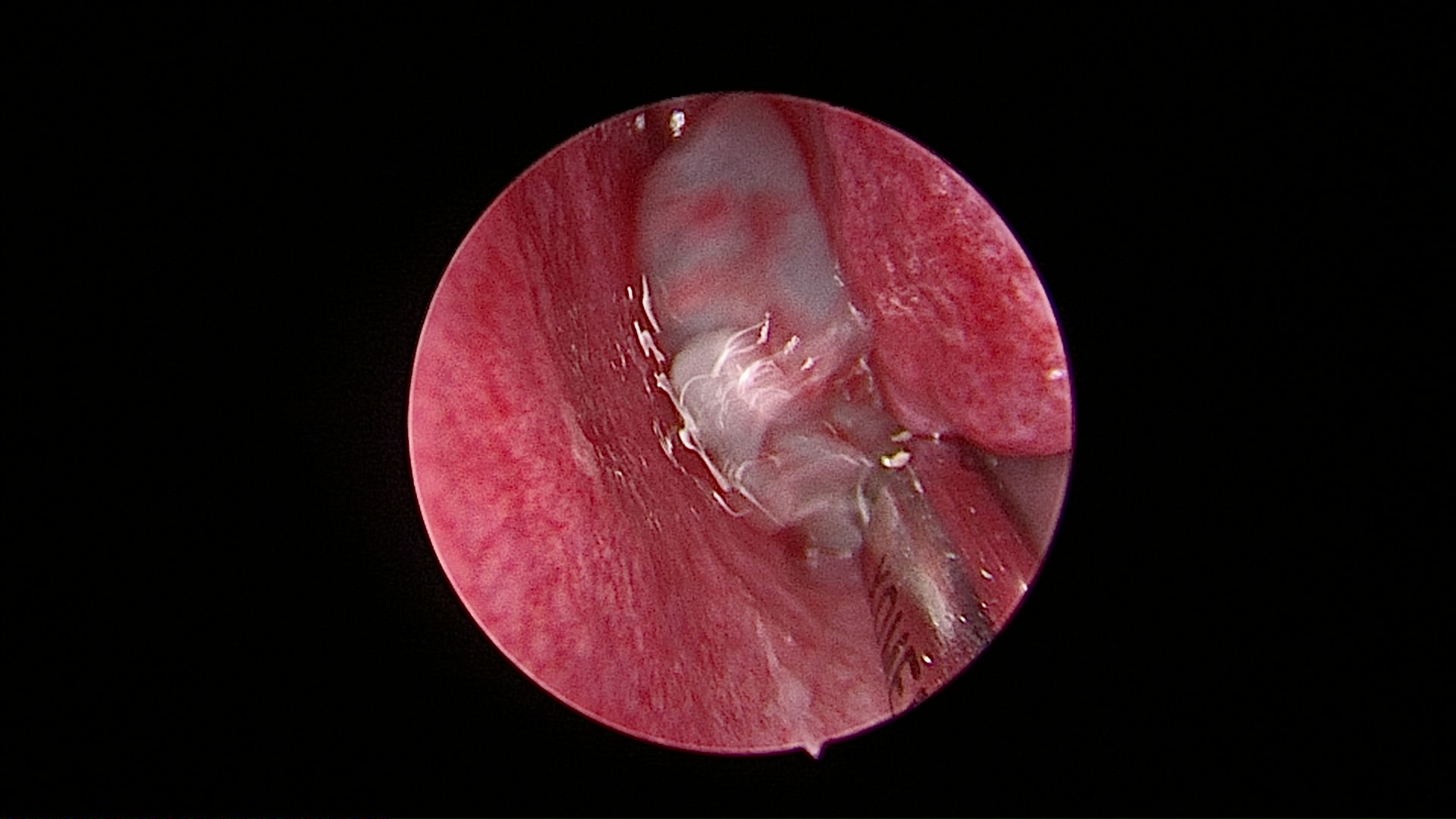
Using debrider blade to cut polyps
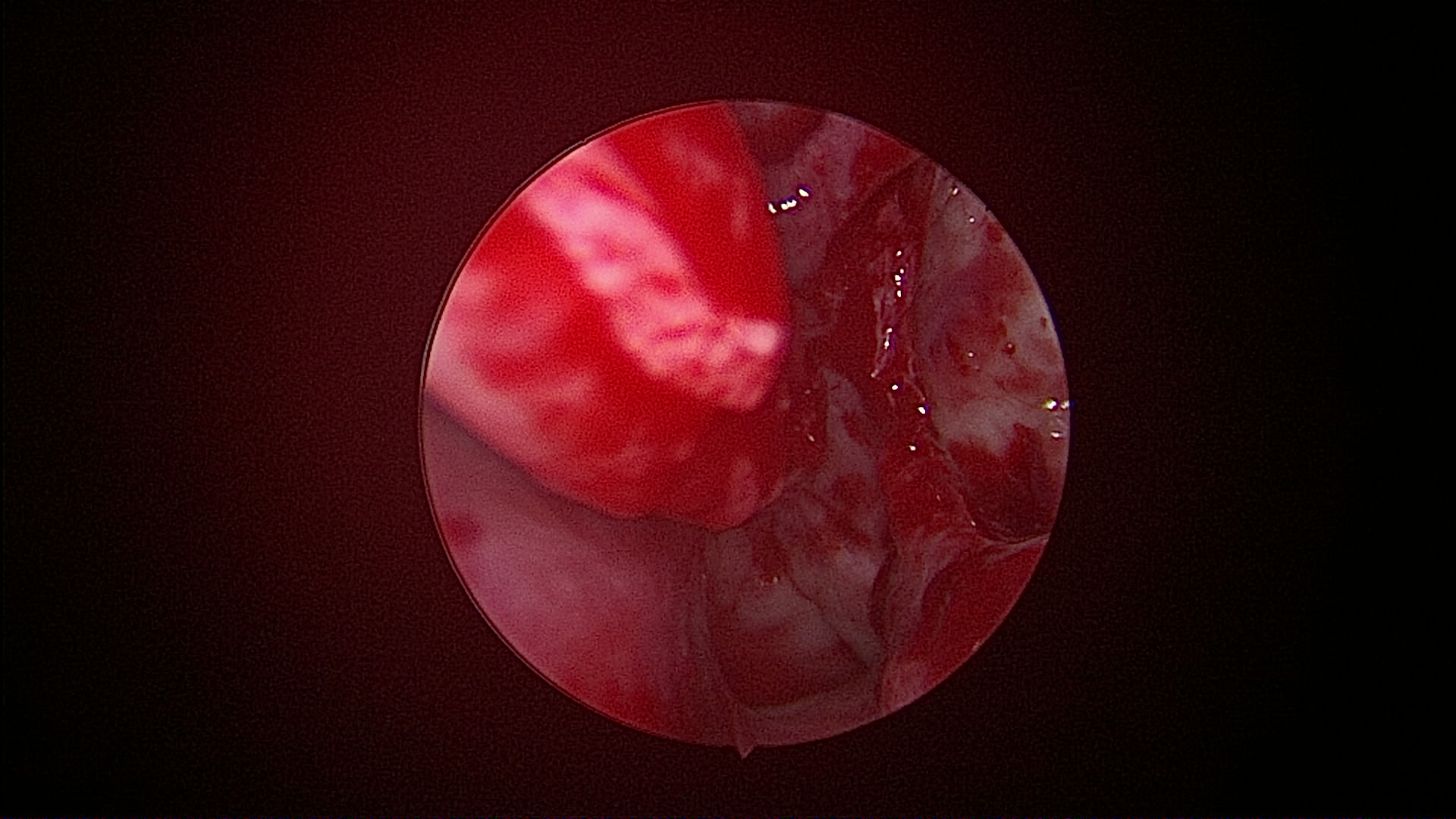
Post clearence of polyps we can see wide sinus openings for easy drainage and nasal airway block clearence
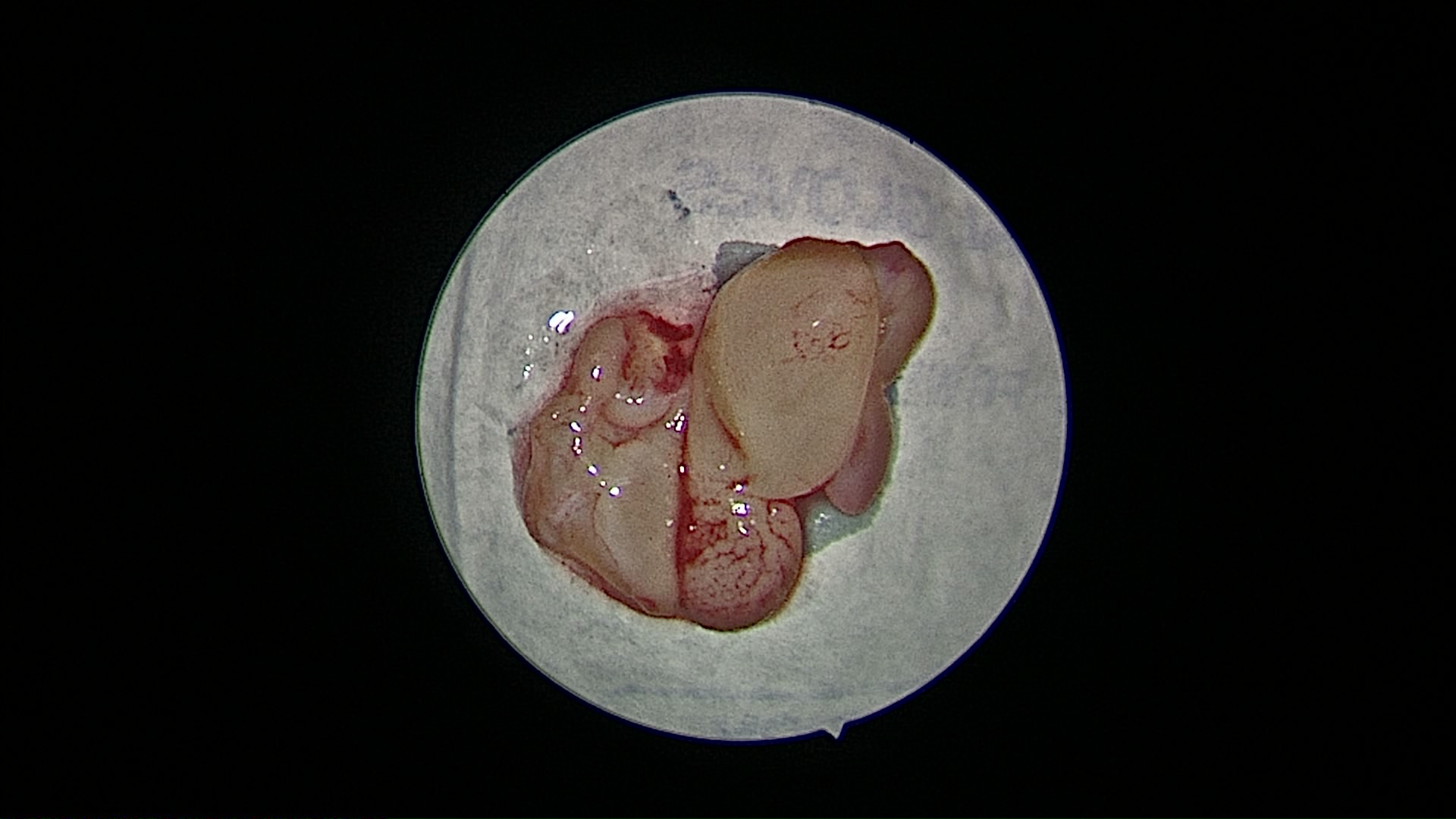
Removed polyps from sinus cavity
Sinus Surgery Post-Operative Instructions
- You may have medicated gauze or sponge packs in your nose for 2-3 days following surgery; this will make breathing through your nose difficult
- Do not pull at the packing material or the thin suture holding them in place.
- Some oozing of blood and mucus is expected for 2-3 days after surgery.
- In case of profuse nasal bleeding, apply ice to the bridge of the nose and pinch the nose just above the tip and hold for 10 minutes; if bleeding continues, contact your surgeon.
- Do not excessively blow your nose until cleared to do so.
- Avoid straining with bowel movements.
- Take all of your routine medications as prescribed, unless told otherwise by your surgeon; any medications which thin the blood should be avoided. These include aspirin and aspirin-like products (Advil, Motrin, Excedrin, Alleve, Celebrex, Naproxyn).
- There are no diet restrictions, but alcohol consumption is not recommended and tobacco use is prohibited as Nicotine decreases blood flow to the healing nasal tissues and can actually compromise wound healing. Please make sure that you have eaten something the morning of pack removal; low blood sugar may make you feel faint when the packs are removed.
- No heavy lifting , no bending or stooping to lift, and no vigorous exercise until cleared by surgeon
- No airplane travel for 2 weeks following sinus surgery; the cabin pressure changes can cause pain and swelling within the sinuses. You may fly sooner after nasal septal surgery alone.
- You can expect to have a stuffy nose for about 3-5 days after surgery, with some intermittent congestion for up to 2 weeks depending on a personal history of allergies or other factors. Sense of smell will be diminished during this time,. There may be some tenderness or numbness in your upper teeth. You may express old clot and discolored mucus from your nose for up to 3-4 weeks after surgery, depending on how frequently and how effectively you irrigate your nose with the saltwater spray.
- Signs of a post-operative infection, which may occur within the 6 weeks after surgery, include fever, foul odor in the nose, discolored nasal secretions, facial pain and pressure, and a cough. If any of these signs develop, contact your doctor to discuss treatment.
- Patients can go to office approximately 7 days of rest after surgery. Sinus cleaning is performed at post-op weekly visits and small tampons or spacers may be removed from the sinus cavities.
- Post op review visits will be scheduled by your surgeon.
- Patients should follow post op nasal douching, nasal sprays, antifungal medication for duration suggested by your surgeon to avoid recurrence of disease.

Contact us
Bayya Hospitals
12-25-192, Bhagath Singh Centre, Kothapet, Guntur, Andhra Pradesh 522001
0863-2225729
+91 6304429294
+91 93819 22827
Useful Links
Consultation Hours
For ENT
Monday – Saturday 9AM – 1:30 Noon,
Evening 5:30PM to 8:00PM
Sunday – CLOSED
For EYE
Monday – Saturday 9AM – 5:00PM
Sunday – CLOSED
